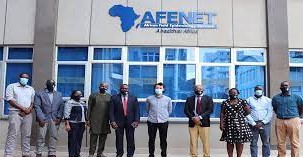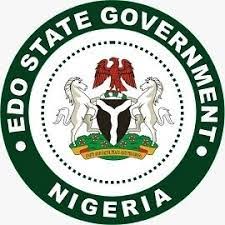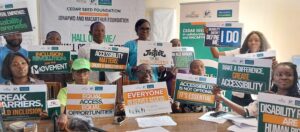Health
AFENET Canvasses Training for African field Epidemiologists

The African Field Epidemiology Network (AFENET) says field epidemiologists work on fostering the concept of ‘One Health’ , a multisectoral collaborative effort that ensures optimal human, animal, and environmental health in Africa.
Dr Simon Antara, Director AFENET, said this on Monday, in Abuja, at a news conference to commemorate the first World Field Epidemiology Day, celebrated on Sept.
7.Field epidemiology is a branch of public health that focuses on identifying diseases and other health events and their risk factors with a view to ensuring that these diseases are prevented or controlled in a timely and effective manner using evidence-based approaches in a practical community level engagement.
The World Field Epidemiology Day is a global movement to recognize and raise awareness of the vital role of field epidemiologists in protecting the health of populations and advancing global health security, as well as to advocate for increased investment in field epidemiology training, research, and professionals.
Antara said that in the sub-Saharan Africa, field epidemiologists engaged in fighting outbreaks and health emergencies such as the COVID-19 pandemic, strengthen disease surveillance and response for early detection and effective response, while generating evidence for policy and decision making.
“We recognize and raise awareness of the vital role of field epidemiologists in protecting the health of populations and advancing sub-national, national, and global health security in the ongoing COVID-19 pandemic,
“Field epidemiologists investigated clusters of outbreaks, identified most at-risk populations, traced contacts of infected persons, isolated the infected and quarantined the exposed.
“They play a key role in communicating health messages and rallying the communities to ensure that the response to COVID-19 is effective, thereby limiting disease transmission and averting millions of deaths, illness and worse societal, economic and livelihood impacts.
“These are individuals that we should celebrate! This period has brought unprecedented visibility to the work of field epidemiologists as the world fights COVID-19.
”But this visibility has not always resulted in understanding the importance of field epidemiology, nor in the increased support needed to strengthen public health systems around the globe to better detect and respond to outbreaks,” he said.
He said field epidemiologists were the world’s “disease detectives” responsible for investigating public health signals to confirm outbreaks and identify cases, contacts, and risk factors for diseases.
“Around the world, their work advances evidence that strengthens public health policies and interventions.
“The community-level knowledge and experiences they acquire through their work enables them to provide decision makers with information to generate strategies for effective health interventions.
“Many field epidemiologists have multidisciplinary expertise that allows them to respond to a wide range of health issues,” he added.
The director disclosed that AFENET would be joining TEPHINET, United States Centre for Disease Control (USCDC), other regional networks of field epidemiology training programs across the globe, and many other stakeholders to celebrate the day.
“in the past 15 years, AFENET has worked with governments and other stakeholders, such as the US CDC, to train over 2,000 field epidemiologists in sub-Saharan Africa
”Whereas this progress is commendable, it only translates to 36 percent of the required 5, 500 epidemiologists needed in the region.
“There are still many countries in sub-Saharan Africa that do not have access to opportunities to develop field epidemiology capacity to strengthen their health systems. What that means is that such countries lack a critical element in their public health emergency response.
“When such countries are faced with public health emergencies, they are unable to mount a formidable response to mitigate the health, economic and social consequences of these events,” he stressed.
He noted that a weak response portends danger for spread within countries and across borders, noting that this was not good for national, continental and global health security.
Antara said to ensure that all countries in sub-Sahara Africa have access to opportunities for field epidemiology capacity development and ensuring maximum utilisation of trained field epidemiologists remained a top priority for AFENET.
“We in AFENET want to salute the field epidemiologists in Africa and across the globe. We are safer and healthier because of your efforts.
”Together, we have worked to protect our people against dangerous pathogens such as Ebola, Marburg, yellow fever, measles, TB, cholera and other infectious diseases.
“We have worked on other public health emergencies such as flooding, cyclones and other natural disasters. We have worked on nutritional issues, lifestyle diseases such as diabetes and hypertension, as well as on mental health issues.
“Like Dr John Snow, the father of field epidemiology we have provided the necessary and critical evidence for public health action.
”On September 7, 1854, John Snow took his findings from his now-famous investigation of the Broad Street cholera outbreak to local officials, leading them to act and to remove the handle of the offending water pump.
“Tomorrow, Sept. 7, we will celebrate World Field Epidemiology Day to recognize and raise awareness of the vital role of field epidemiologists in protecting the health of populations and in advancing global health security.
”We call for increased investment in field epidemiology training, research, and professionals,” he said.
He called on all African Governments to include field epidemiology capacity development as part of their workforce strengthening efforts. “Again, we call on governments to fund, expand and sustain existing field epidemiology training programs.
”We are also calling on non- governmental organizations, the private sector, philanthropist and all stakeholders to renew their commitment to public health security, by investing adequately in the development of field epidemiology capacity across all countries in Africa,” he said. (NAN)
Health
Nigeria Records 15,000 AIDS-related Deaths Annually-NACA

The National Agency For the Control of Aids (NACA) says no fewer than 15,000 AIDS-related deaths occur each year in Nigeria.The Director-General, NACA, Mrs Temitope Ilori stated this on Thursday in Abeokuta during an advocacy visit focused on achieving an AIDS-Free Generation and building a sustainable HIV response in Ogun.
Ilori, represented by Dr James Anenih, the Director of Community Prevention and Care Service, noted that approximately 140,000 children between the ages of 0 to 14 were living with HIV. She added that 22,000 new HIV infections were recorded so far this year.She expressed concern over thePrevention of Mother-to-Child Transmission (PMTCT), paediatric HIV coverage remains below 33 per cent of the 95 per cent target.She said hat Nigeria continues to face a significant challenge in preventing mother-to-child transmission of disease.Ilori appreciated the Ogun government for equipping selected health facilities to provide anti-retroviral therapy.She however expressed concerns that the state has a higher prevalence of 1.6 per cent than the national average of 1.4 per cent and the South West average of 1.2 per cent.“We acknowledge the great work your excellency has done in upgrading and equipping selected health facilities to provide anti-retroviral therapy (ART) from 22 sites in 2019 to 28 sites in 2023.“Also, the commissioning of the One-Stop-Shop and Community ART (CART) in Ogun East and Ogun West.“It is imperative to note that Ogun state has an HIV prevalence greater than the national average of 1.4 per cent and the South West average of 1.2 per cent.“There is an urgent need to halt and reverse the prevalence of the state from its current level of 1.6 per cent,” she said.Ilori said that no child in Ogun should be born with HIV, just as she tasked all pertinent partners to compile a comprehensive line list of children affected to expedite the country’s pediatric ART program.“The expectation is to have an AIDS-free generation at this point we are trying to make sure that all hands are on deck.“We’re looking at all of the various resources available to us and holding ourselves accountable so we can do more with reducing mother to child transmission or reducing the number of children born HIV positive,” Ilori added.In her response, the Commissioner for Health, Dr Tomi Coker stressed that the state’s HIV prevalence rate was critical.She commended the agency for visiting and inaugurating an 18-man PMTCT and Paediatric ART committee.She said that the committee would supervise the care of HIV-positive pregnant women to ensure that they do not have sufficient virus to infect their unborn children.Coker added that the committee would also place children who are positive on treatment to avoid the spread.NAN recalls that NACA said in 2023 alone, Nigeria recorded 75,000 new HIV infections and 45,000 HIV-related deaths.This the agency had said was alarming surge highlights significant lapses in the national response to this epidemic.(NAN)Health
Lassa Fever: Nigeria Records 174 Deaths, 1,035 Confirmed Cases from January to October – FG

By Laide Akinboade, Abuja
The Federal Government, FG, on Tuesday said as of October 13th, Nigeria has recorded 8,569 suspected cases, 1,035 confirmed cases, and 174 deaths of Lassa Fever, have been reported across 28 states and 129 Local Government Areas, LGAs.
Director General, Nigeria Centre for Disease Control and Prevention, NCDC, Dr.
Jide Idris, stated this while briefing the media, in Abuja, on prevention and creating awareness on Lassa Fever and Cerebrospinal Meningitis (CSM), in the country.He said considering a steady increase in the number of states reporting Lassa fever cases, it is imperative to prevent, detect, and respond to cases of Lassa fever across the country.
According to the DG, “We have continued to see a steady increase in the number of states reporting Lassa fever cases. This rise is due, in part, to improved surveillance, better community awareness, environmental degradation from climate change, and other harmful human activities. In 2022, Nigeria reported 1,067 confirmed cases across 27 states and 112 LGAs. In 2023, 28 states and 114 LGAs reported confirmed cases, with 9,155 suspected cases, 1,270 confirmed cases, and 227 deaths.
“As of October 13, 2024, 8,569 suspected cases, 1,035 confirmed cases, and 174 deaths have been reported across 28 states and 129 LGAs.
“Lassa fever is an acute viral haemorrhagic fever (VHF) caused by the Lassa virus. The natural reservoir for the virus is the multimammate rat (also known as the African rat). Other rodents can also act as carriers of the virus.
“The disease is also associated with significant loss of livelihood in the communities it ravages. Heads of households are unable to work when exposed to Lassa fever and when other household members are infected, the cost of care and treatment of the disease which is often significant strains existing household income pushing households toward poverty in a swift turn of events.
“Lassa fever outbreaks are highly virulent and the loss of human lives resulting from disease are not just statistics but represent the death of beloved family members, spouses, parents. Healthcare workers are also not excluded as there is a high chance of infection if proper infection prevention and control measures are not observed and experienced healthcare workers may die further straining the country’s already insufficient human resources for health.
While we continue to intensify efforts using an all-of-society approach, the public is hereby advised to note that the virus spreads through:
Direct contact with urine, faeces, saliva, or blood of infected rats.
“Contact with objects, household items, and surfaces contaminated with the urine, faeces, saliva, or blood of infected rats.
Consuming food or water contaminated with the urine, faeces, saliva, or blood of infected rats.
Person-to-person transmission can also occur through direct contact with blood, urine, faeces, vomitus, and other body fluids of an infected person”.
NCDC boss, said the symptoms for Lassa Fever, is like other common illnesses accompanied by a fever, such as malaria. Other symptoms include headache, general body weakness, cough, nausea, vomiting, diarrhoea, muscle pains, chest pain, sore throat, and, in severe cases, bleeding from ears, eyes, nose, mouth, and other body openings. The time between infection and the appearance of symptoms of the disease is 3 to 21 days. Early diagnosis and treatment of the diseases greatly increase the chances of patient survival.
People most at risk for Lassa fever are:
People of all age groups who come in contact with the urine, faeces, saliva, or blood of infected rats.
He therefore advised the populace to ensure they always keep your environment clean, block all holes in your house to prevent the entry of rats and other rodents, cover your dustbins and dispose of refuse properly and communities should set up dump sites far from their homes to reduce the chances of the entry of rodents into their homes.
Also store food items such as rice, garri, beans, corn/maize, etc., in tightly sealed or well-covered containers, avoid drying food stuff outside on the ground or roadside, where it is at risk of contamination and eliminate rats in homes and communities by setting rat traps and other appropriate and safe means.
The Dr. Jide Idris, also spoke on prevention of Cerebrospinal Meningitis (CSM), said Nigeria recorded 4,915 suspected and 380 confirmed cases with 361 deaths across 174 Local Government Areas (LGAs) in 24 States including the Federal Capital Territory.
However, noted that, weather conditions like the dry season that comes with dust, winds, cold nights, and frequent upper respiratory tract infections increase the risk of infection, especially with crowding and poor ventilation.
He said, “The highest burden of CSM in Nigeria occurs in the “Meningitis Belt” which includes all 19 states in the Northern region, the Federal Capital Territory (FCT), and some southern states such as Bayelsa, Cross River, Delta, Ekiti, Ogun, Ondo, Osun).
“In 2023/2024, Nigeria recorded 4915 suspected and 380 confirmed cases with 361 deaths across 174 Local Government Areas (LGAs) in 24 States including the Federal Capital Territory. A total of 2, 281, 750 doses of Men5CV- ACWYX in Bauchi, Gombe, Jigawa and Yobe covering 134 wards in the 13 LGAs. The campaign targeted individuals aged 1-29years, comprising 70% of the population.
He said CSM occurs when there is an acute inflammation of the covering of the brain and the spinal cord. This inflammation can be caused by infection with any of the following organisms – bacteria, viruses, parasites, or fungi. Injuries and certain drugs can also cause such inflammation.
“CSM is an epidemic-prone disease with cases reported all year round in Nigeria. However, weather conditions like the dry season that comes with dust, winds, cold nights, and frequent upper respiratory tract infections increase the risk of infection, especially with crowding and poor ventilation. The highest burden of CSM in Nigeria occurs in the “Meningitis Belt” which includes all 19 states in the Northern region, the Federal Capital Territory (FCT), and some southern states such as Bayelsa, Cross River, Delta, Ekiti, Ogun, Ondo, Osun)”, he stressed.
He lamented that, despite the progress in surveillance, diagnostic capacity, and vaccination over the last few years, CSM remains a priority disease and ever-present public health threat in Nigeria with annual outbreaks in high-burden states that present a challenge for people, health systems, economies, and communities.
He therefore said the disease spreads through,
direct person-to-person contact, including droplets from the nose and throat of infected persons and close and prolonged contact with an infected individual.
According to him, the symptoms for the disease include, fever, headache, nausea and vomiting, photophobia (pain on looking at bright lights), neck stiffness, and altered conscious levels. It may be more difficult to observe these signs in younger children, but irritability, poor feeding, and inactivity are common.
He therefore advised that the citizens should ensure they receive the appropriate vaccination required to protect against meningitis, avoid close and prolonged contact with a confirmed case of CSM including relatives, avoid overcrowding on households, schools dormitories, IDPs, prisons other communal settings and practice proper respiratory hygiene when coughing or sneezing.
Stop indoor air pollution, such as indoor cooking over open flames, practice good personal and hand hygiene by frequently washing hands with soap under running water or using hand sanitisers when necessary, always keep your environment clean and visit the nearest health facility immediately if you notice any of the signs and symptoms associated with CSM.
Health
Nigeria, 7 others Begin African-led HIV Vaccine Development

Nigeria and seven other African countries have begun a project to check HIV in the continent.
The project is tagged, Bringing Innovation to cLinical and Laboratory research to end HIV In Africa through New vaccine Technology (BRILLIANT) for HIV vaccine research and development.
Prof Alash’le Abimiku, Executive Director, International Research Centre of Excellence, Institute of Human Virology (IHVN), disclosed this at a press briefing on Thursday in Abuja.
The theme of the briefing was, “HIV Vaccine, Innovation, Science, and Technology Acceleration in Africa (HIV-VISTA) study.
”Abimiku said that the countries involved were Nigeria, South Africa, Zambia, Zimbabwe, Tanzania, Uganda, Kenya, and Mozambique.
She said that the objective of the consortium is to evaluate HIV vaccine candidates emanating from the continent.
She added that the initiative was to harness and catalyse African scientists to contribute to an effective HIV vaccine.
“Through these efforts, African institutions will be encouraged to become more autonomous, generate domestic resource support, and form partnerships with the private sector.
“It will possibly create a more sustainable system for HIV vaccine research and development, which is progressively and inordinately dependent on the U.S government,” she said.
She expressed optimism that the partnership will acknowledge the potential of great innovation and science from Africa to solve global health challenges especially those that disproportionally devastate the continent.
Dr Temitope Ilori, Director-General, National Agency for the Control of AIDS (NACA), said that HIV still persisted in spite of efforts at controlling it, hence the need for new tools for prevention.
“The agency has continued to provide preventive measures, but an effective vaccine is crucial to our efforts.
“The BRILLIANT study offers hope for a vaccine tailored to the needs of our population, and Nigeria’s involvement in this global initiative is critical.
“Our participation supports both local and international efforts to end AIDS and brings us closer to a vaccine that could save countless lives across Africa and beyond,” she said.
She said that the BRILLIANT study exemplified the strength of global collaboration and scientific progress.
“Together, we can achieve our shared goal of eradicating HIV worldwide, and Nigeria is honoured to play a vital role in this endeavor,” she said.
Dr Ezekiel James, the Deputy Director of the office of HIV/TB from U.S. Agency for International Development (USAIDS), said that the study offered opportunity for stakeholders to combine efforts to achieve HIV epidemic control.
Similarly, Dr Leo Zekeng, UNAIDS Country Director, stressed the need to engage the community to create awareness of HIV vaccines and similar research that continues to break HIV transmission rates.
The World Health Organisation (WHO) had, on Tuesday, named HIV, malaria, Tuberculosis, and 14 other pathogens as top priorities for new vaccine development.
Also, according to UNAIDS, there are an estimated 39.9 million people living with HIV across the globe in 2023, with an estimated 1.3 million new infections.
Africa has about 25.9 million (65 per cent) of the global burden with Nigeria, contributing about 1.9 million, making it the fourth largest HIV burden country globally.
The USAIDS awarded more than 45 million dollars to the BRILLIANT consortium through a competitive process to implement a cooperative agreement under the BRILLIANT project. (NAN)


















